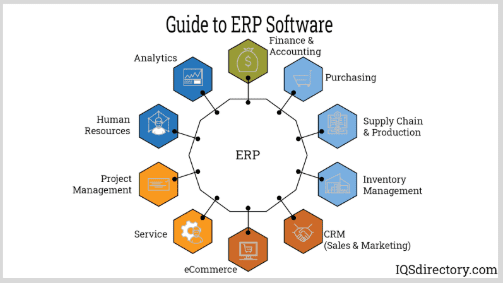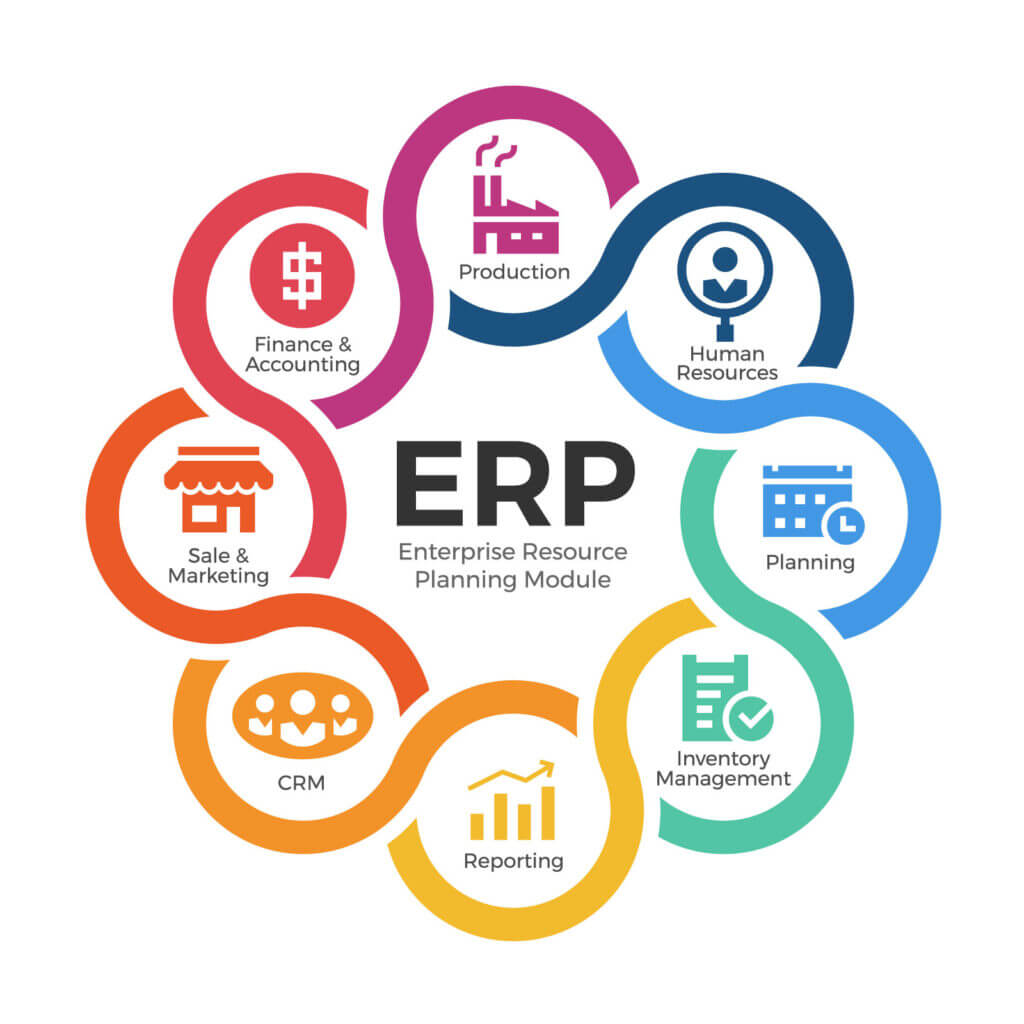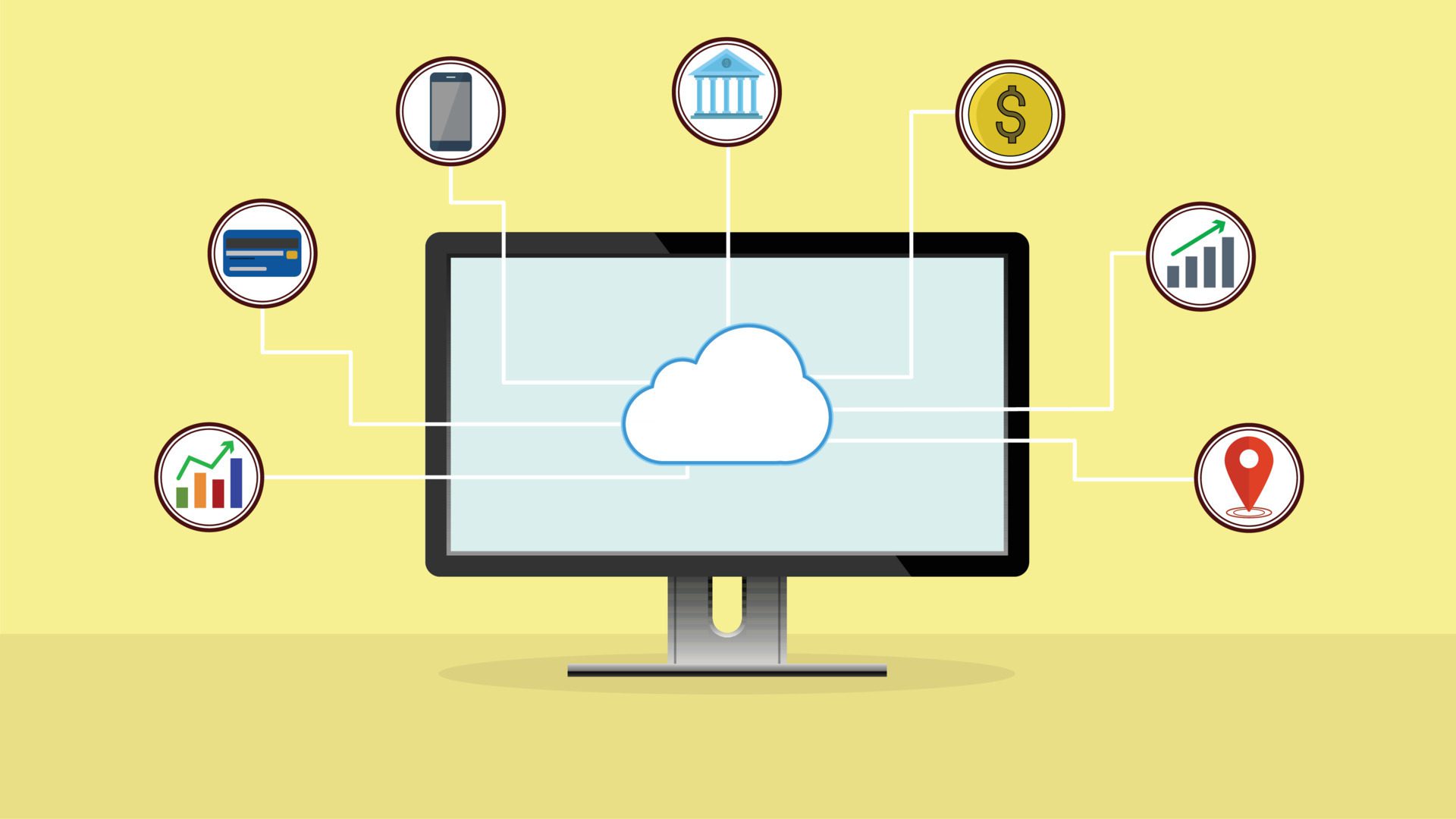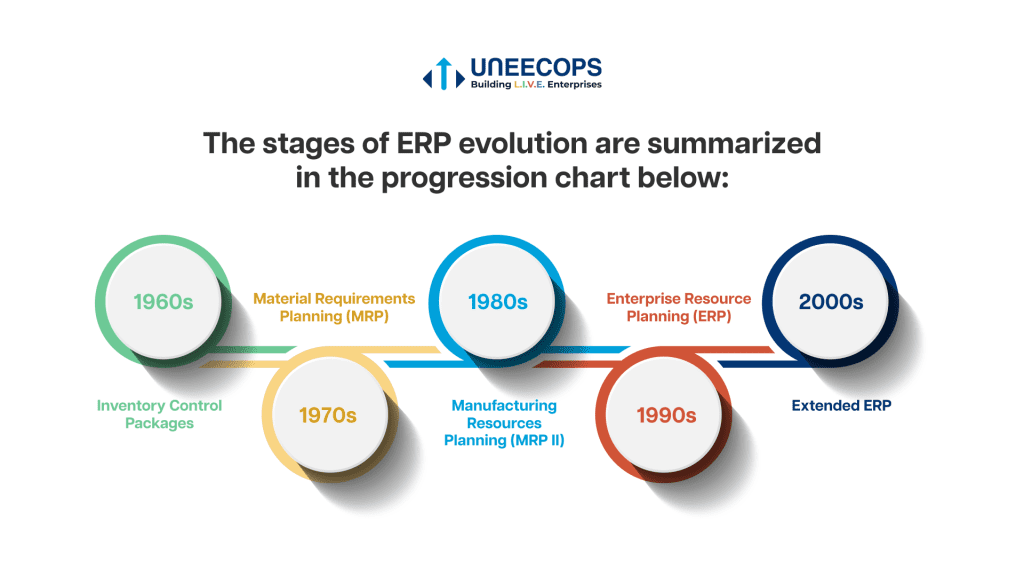Erp Project Accounting
Welcome, dear reader, to an enlightening discussion on the significant role of ERP project accounting in modern business operations. As companies strive to stay competitive in today’s fast-paced market, the need for efficient project accounting software becomes increasingly evident. From tracking expenses and revenue to ensuring compliance with financial regulations, ERP project accounting plays a vital role in ensuring the financial health of a company. Join us as we delve into the world of project accounting and discover how it can streamline financial processes and drive business success.
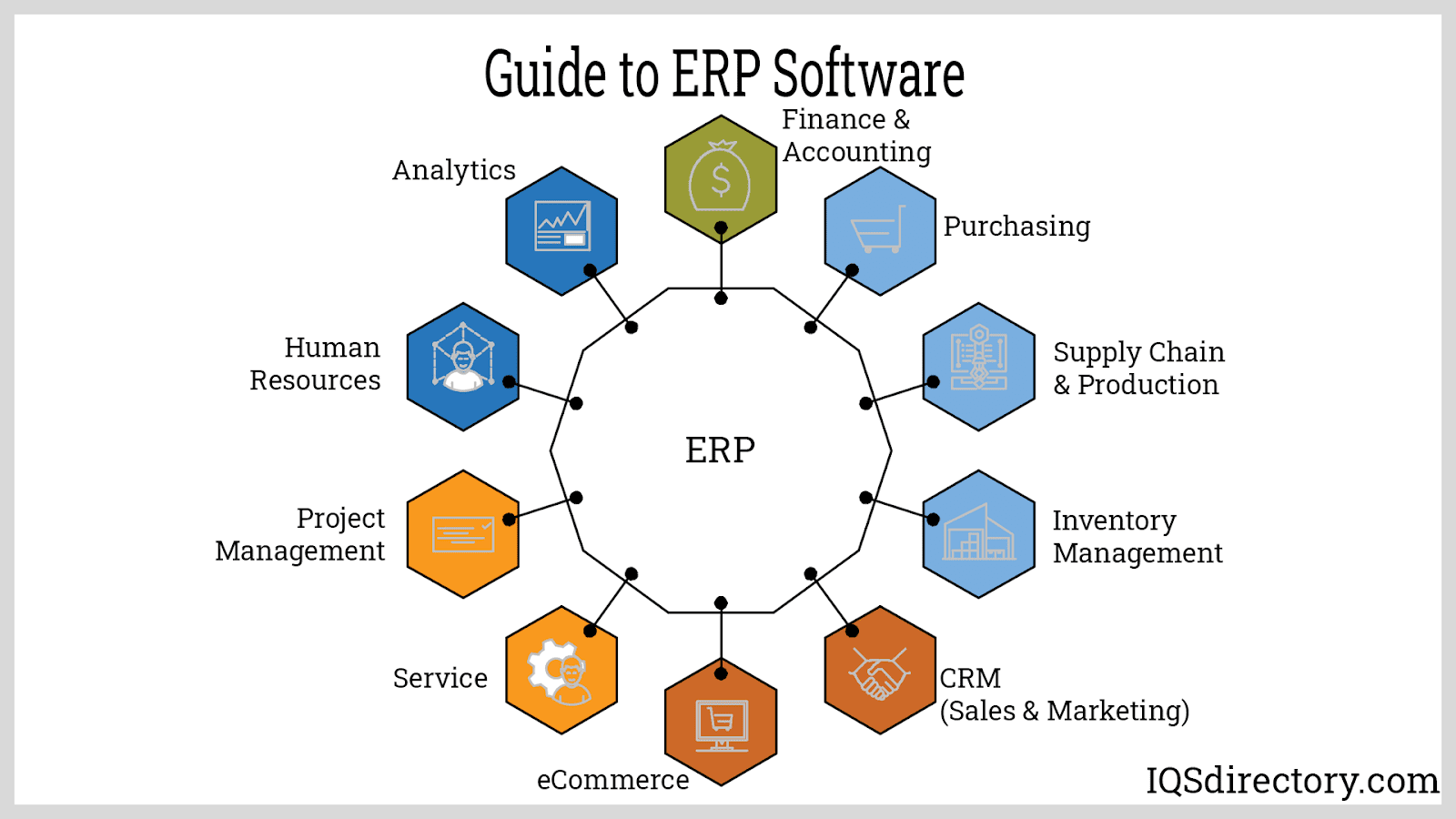
Importance of ERP Project Accounting in Business
ERP Project Accounting plays a crucial role in the success of businesses by providing a comprehensive view of project costs, resources, and financial performance. By integrating project accounting with other ERP modules, businesses can streamline their financial processes and make informed decisions regarding resource allocation and project profitability.
One of the key benefits of ERP Project Accounting is that it allows businesses to track project costs and expenses in real-time, enabling managers to monitor project budgets and make adjustments as needed. This level of visibility helps prevent cost overruns and ensures that projects are completed within budget and on schedule.
ERP Project Accounting also helps businesses improve resource management by providing insights into resource utilization and availability. By tracking employee time and expenses against specific projects, businesses can optimize resource allocation and ensure that the right resources are assigned to the right projects at the right time.
Furthermore, ERP Project Accounting enables businesses to generate accurate and timely project reports, allowing stakeholders to assess project performance and profitability. By providing detailed financial data on each project, businesses can identify areas for improvement, evaluate project profitability, and make strategic decisions to drive business growth.
In addition, ERP Project Accounting helps businesses comply with financial regulations and reporting requirements by maintaining accurate and up-to-date financial records. This level of transparency and accountability not only helps businesses avoid financial penalties and legal issues but also builds trust with stakeholders and investors.
Overall, ERP Project Accounting is essential for businesses looking to enhance project management, optimize resource allocation, improve financial visibility, and ensure compliance with regulatory requirements. By leveraging the power of ERP software, businesses can streamline their project accounting processes, improve decision-making, and achieve greater success in today’s competitive business landscape.
Key Features of ERP Project Accounting Software
ERP Project Accounting Software is a crucial tool for businesses looking to efficiently manage their projects and financials. As technology continues to advance, these software solutions are becoming more powerful and comprehensive than ever before. Here are some key features of ERP Project Accounting Software that can help businesses streamline their project management processes:
1. Budget Management: One of the primary features of ERP Project Accounting Software is its ability to effectively manage project budgets. With this software, businesses can set budget limits for each project, track expenses in real-time, and receive alerts when budgets are nearing their limits. This feature helps businesses avoid overspending and ensures that projects stay on track financially.
2. Resource Management: Another important feature of ERP Project Accounting Software is resource management. This feature allows businesses to allocate resources efficiently, ensuring that the right people are assigned to the right tasks at the right time. With resource management capabilities, businesses can easily track employee workloads, skills, and availability, helping them optimize resource allocation and improve project efficiency.
3. Time Tracking: Time tracking is a critical feature of ERP Project Accounting Software, as it allows businesses to accurately monitor how much time is being spent on each project task. This feature helps with project planning, resource allocation, and billing accuracy. By tracking time spent on projects, businesses can gain valuable insights into project progress and make data-driven decisions to improve project timelines and profitability.
4. Expense Management: ERP Project Accounting Software also offers robust expense management capabilities. Businesses can easily track and monitor project expenses, such as travel costs, equipment purchases, and subcontractor fees. This feature helps businesses stay on top of project costs, ensure accurate invoicing, and maintain profitability. With expense management tools, businesses can streamline their financial processes and reduce the risk of errors or fraud.
5. Reporting and Analytics: ERP Project Accounting Software provides businesses with comprehensive reporting and analytics tools. With customizable dashboards and reports, businesses can gain valuable insights into project performance, financial health, and resource utilization. This feature enables businesses to make informed decisions, identify trends, and improve overall project management processes. By leveraging reporting and analytics capabilities, businesses can optimize project outcomes and drive business growth.
Overall, ERP Project Accounting Software offers a wide range of features that can help businesses effectively manage their projects and finances. From budget management to resource allocation, time tracking, expense management, and reporting, these software solutions provide businesses with the tools they need to succeed in today’s competitive market. By investing in ERP Project Accounting Software, businesses can streamline their project management processes, improve financial visibility, and achieve greater project success.
Benefits of Implementing ERP Project Accounting Systems
Implementing an ERP project accounting system can bring numerous benefits to an organization. Not only does it streamline the accounting processes, but it also provides valuable insights and data that can help in making informed decisions. Here are some of the key benefits of implementing ERP project accounting systems:
1. Improved Accuracy and Efficiency: One of the main benefits of implementing ERP project accounting systems is the improved accuracy and efficiency in financial management. By automating processes such as data entry, invoicing, and reporting, organizations can minimize errors and save time. This not only leads to a more efficient accounting department but also ensures that financial data is more accurate and reliable.
2. Real-time Data and Insights: Another significant advantage of ERP project accounting systems is the access to real-time data and insights. With all financial information stored in one centralized system, organizations can easily track project expenses, monitor budgets, and generate reports instantly. This enables stakeholders to make informed decisions quickly and effectively, leading to better financial outcomes.
3. Enhanced Project Visibility and Control: When organizations implement ERP project accounting systems, they gain enhanced visibility and control over their projects. By tracking project costs, resources, and timelines in real-time, project managers can identify potential issues early on and take corrective actions to ensure project success. Additionally, integrating project accounting with other ERP modules such as supply chain management and human resources can provide a holistic view of the organization’s operations, leading to improved project outcomes.
Overall, implementing ERP project accounting systems can have a transformative impact on an organization. From improved accuracy and efficiency to real-time data and insights, the benefits are clear. By investing in these systems, organizations can streamline their financial management processes, make better decisions, and ultimately achieve their project goals more effectively.
Challenges Faced During ERP Project Accounting Implementation
Implementing ERP project accounting can be a challenging endeavor for many organizations. From technical issues to resistance from employees, there are several obstacles that can arise during the implementation process. Let’s take a closer look at some of the key challenges faced during ERP project accounting implementation:
1. Complexity of the Software: One of the main challenges faced during ERP project accounting implementation is the complexity of the software itself. ERP systems are often highly customizable and can have hundreds of modules and features, which can make it difficult to navigate and set up properly. This complexity can lead to delays in implementation and training issues for employees.
2. Integration with Existing Systems: Another common challenge is integrating the new ERP project accounting system with existing systems and software within the organization. This can be a complicated process, especially if the systems are not compatible or if there are data migration issues. It is important to ensure that the ERP system can effectively communicate with other systems to avoid disruptions in workflow.
3. Resistance from Employees: Resistance from employees is another challenge that organizations may face during ERP project accounting implementation. Some employees may be resistant to change and may struggle to adapt to the new system. This can lead to decreased productivity and efficiency, as well as potential pushback from staff who are used to the old way of doing things.
4. Lack of Training and Support: A lack of adequate training and support for employees can also be a significant challenge during ERP project accounting implementation. Employees may not fully understand how to use the new system or may be overwhelmed by the changes. Without proper training and support, employees may struggle to effectively utilize the system, leading to errors and inefficiencies in project accounting processes.
Overall, ERP project accounting implementation can be a complex and challenging process for many organizations. By addressing these key challenges and providing adequate support and training for employees, organizations can increase the likelihood of a successful implementation and maximize the benefits of their new ERP system.
Best Practices for Successful ERP Project Accounting Integration
ERP project accounting integration can be a complex process that requires careful planning and execution. In order to ensure a successful integration, it is important to follow best practices that have been proven to work. Here are five key best practices that can help ensure success when integrating ERP project accounting:
1. Define Clear Objectives: Before embarking on an ERP project accounting integration, it is essential to clearly define the objectives of the integration. This includes identifying the specific goals you hope to achieve, such as improved financial reporting, streamlined project workflows, or enhanced data visibility. By defining these objectives upfront, you can ensure that all stakeholders are on the same page and working towards a common goal.
2. Engage Key Stakeholders: Successful ERP project accounting integration requires buy-in from key stakeholders across your organization. This includes finance teams, project managers, IT staff, and other relevant departments. Engaging these stakeholders early in the process can help ensure that their needs and concerns are addressed, and that the integration is tailored to meet the specific requirements of your organization.
3. Conduct Thorough Testing: Before fully integrating ERP project accounting into your organization, it is crucial to conduct thorough testing to identify any potential issues or discrepancies. This includes testing the compatibility of your existing systems with the new ERP software, as well as testing the accuracy of data migration and integration processes. By identifying and addressing any issues during the testing phase, you can minimize disruptions once the integration is fully implemented.
4. Provide Training and Support: Implementing a new ERP project accounting system can be a significant change for your organization, so it is important to provide adequate training and support to help users adapt to the new system. This may include offering training sessions for employees, creating user guides and documentation, and providing ongoing support from IT staff or consultants. By investing in training and support, you can help ensure a smooth transition to the new system and maximize user adoption.
5. Monitor and Evaluate Performance: Once the ERP project accounting integration is complete, it is important to continuously monitor and evaluate the performance of the system. This includes tracking key metrics such as project profitability, resource utilization, and data accuracy, and identifying areas for improvement. By regularly reviewing performance metrics, you can make informed decisions about how to optimize the system and ensure that it continues to meet the needs of your organization over time.
By following these best practices for successful ERP project accounting integration, you can help ensure a smooth and effective transition to a new system that enhances your organization’s financial reporting capabilities and project management processes.
